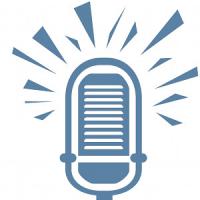Maintaining Our Objective Voice in Testing

Go with the flow, don’t rattle cages, run with the crowd, avoid controversy, fit in, collaborate, work together as a team. These are all words and phrases, spoken or unspoken, that surround us regularly in both our professional and personal lives. As humans, we strive to get along with one another so we can enjoy the mutual rewards and benefits of working together, building relationships, delivering results, and leaving things better than we found them.
As we embrace an agile culture, the core values of whole team accountability, responsiveness, and delivering stakeholder value are heightened further. From a testing perspective, we bring expertise to the team on the art and science of testing, and we must serve many roles as mentor, coach, change agent, teacher, subject matter expert, facilitator, risk information provider, analyst, test designer, test architect, test automator, test leader, and others.
Most especially, we must maintain our ability to ask challenging questions, think deeply about the “what-ifs,” consider and advocate for alternative views, ask why multiple times, pause and reflect, challenge assumptions, demand evidence of grand statements or assertions, look for ambiguities and things missing or wrong, and pursue interesting anomalies like great forensic detectives. These are attributes of critical thinking—or, as Michael Bolton puts it, “Critical thinking is thinking about thinking with the aim of not getting fooled.”
Our challenge is employing critical thinking and then communicating the results of our thinking effectively. I call the latter using our “objective voice.”
How do we think critically and use our objective voice effectively in an agile culture? It begins with an understanding of our core values, such as honesty, integrity, professionalism, ethics, accountability, respect for others, and supporting assertions with evidence. We may not all embrace the same core values, but understanding our own is a foundational element for employing critical thinking and communicating with an objective voice.
I will be the first to admit that there were times in my career when I became a chameleon and went along with the crowd just to be liked. These times were driven by uncertainty about my own core values and insecurity in the value I brought to the team. But these periods were (and continue to be) learning experiences.
I’ve written previously that getting software right is now a social responsibility. Those in a testing role are called to question things professionally. Most of us are testers because we are great at discovering when things are not quite as they seem, whether it be the evaluation of the product under test, a vendor or tool that says it can save the world, overly optimistic schedules or tasks, or processes, practices, or metrics that are presented as silver bullets.
We must learn to pause, think, analyze, and reflect, and then provide alternative views and risk information. Don’t be silent! Practice critical thinking and use your objective voice every day. The result will be a better outcome for you, the product, your company, and your key stakeholders.

